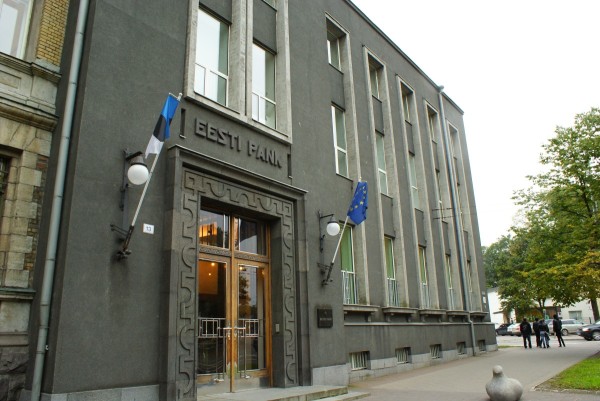The Estonian economy has exited recession and started growing, mainly on the back of exports. Estonia's economic recovery has been supported by our trading partners' faster-than-anticipated growth in the first half of the year. However, the latter is likely to be short-lived, since the temporary post-crisis normalisation in the world trade situation is nearing its end and government expenditures are increasing. The aftermath of the crisis is exerting a strong pressure on growth outlooks in several countries, because global economic recovery largely depends on the ability of advanced economies to regain control over their general government budget and debt level. The external environment's inflation is expected to remain subdued over the forecast horizon, although various raw materials have gone up in price and markets do not expect them to return to lower levels.
Estonia's companies and the government have displayed considerable aptitude in increasing efficiency. Post-slump adjustments have laid the foundation for productivity-based growth, so productivity per employee is likely to reach a historical high in 2012. The volume of the economy will nevertheless remain below pre-crisis levels over the next years and the next quarters' rapid expansion compared to 2009 is of one-off nature, since external demand growth is slowing.
Unemployment is expected to contract in the second half of 2010, but long-term unemployment will continue its growth trend well into the next year. Estonia's labour market has been displaying clear revival signs, but high unemployment has not disappeared. Since the economy will not be able to create enough jobs even in the circumstances of faster growth, the issue of unemployment will persist in the years to come, coupled with the risks that people may lose their skills and that more and more jobless people may become discouraged. It is still too early to determine which structural changes the crisis has delivered.
The duration and extent of wage and price cuts have been smaller than the shrinkage in GDP would have given reason to suppose. The decline in wages and prices so far has helped the economy stabilise. At the same time there is the threat that the current wage and price level will not provide enough impetus for new investment and job creation. Inflation will be above the euro-area average in the next years, but mostly due to external factors and administrative measures. Headline inflation will speed up over the next months because of rising food prices. The scope and duration of the latter depends on developments in both global and neighbouring markets.
However, the price hike of food is unlikely to have a permanent impact on inflation, as is also proved by euro-area inflation expectations. This, coupled with the considerable amount of underutilised production capacity and high unemployment will keep the inflation rate in Estonia at a low level in the coming years. If domestic price pressures surface, it may be a sign of either a weak competitive environment or insufficient post-crisis adjustment.
In order to restore fiscal surpluses, it is necessary to use growth-induced additional tax revenue for curbing the deficit and not for increasing expenses. The fiscal balance improvement of 2009 was an indispensable step in restoring confidence in the Estonian economy. At the same time, if growth in the external environment slows more sharply than anticipated, Estonia may have to cut costs even more. Both general government spending and tax burden have hiked in the aftermath of the crisis. Looking further ahead, it is important to determine whether or not the economy will cope with this load and if it is necessary to reduce taxes in order to support the growth potential. In addition, it is necessary to ascertain the cost structure that would contribute most to the latter.
The currently drafted Debt Restructuring Act plans to give court judges relatively free hands to decrease debts, which means banks may decide to discontinue the lowering of interest margins and to curb lending. If this risk materialises, economic growth will be weaker and shrinkage in unemployment slower than anticipated. Banks in Estonia have remained conservative and their lending activity is still subdued. Credit market activity, which has so far been more moderate than expected as regards both volumes and decreasing margins, plays a very important role in economic recovery.
For more click here:
http://www.eestipank.info/pub/...
Economic policy statement of Eesti Pank (end of September)
Eestlased Eestis | 04 Oct 2010 | EWR
Eestlased Eestis
TRENDING
























